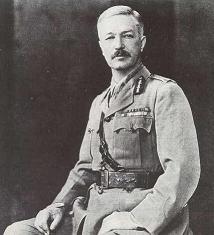Reginald Edward Harry Dyer – The Butcher of Amritsar

Reginald Edward Harry Dyer, CB, known famously as the “Butcher of Amritsar,” was a controversial figure in British colonial history, primarily remembered for his role in the Jallianwala Bagh massacre of 1919. Here’s a summary of his life, career, and the events surrounding the massacre:
Early Life and Military Career:
- Birth and Education: Dyer was born on October 9, 1864, in Murree, British India (now Pakistan). He received his early education in India and Ireland.
- Military Service: Dyer pursued a military career, graduating from the Royal Military College of Sandhurst in 1885. He served in various capacities, including in the Bengal Army and during the First World War, where he commanded the Seistan Force.
Amritsar Massacre:
- Background: The Jallianwala Bagh massacre occurred on April 13, 1919, in Amritsar, Punjab. Tensions were high due to civil unrest and protests against British rule, exacerbated by the arrest of two Indian leaders, Dr. Satyapal and Dr. Saifuddin Kitchlew.
- Events: Dyer, as Brigadier-General, ordered troops to open fire on a crowd gathered at Jallianwala Bagh, resulting in hundreds of deaths and injuries. The firing continued for about ten minutes, targeting even those attempting to flee.
- Reactions: The massacre provoked widespread condemnation, both in Britain and India. It was seen as a brutal and unjustifiable act of violence against unarmed civilians.
- Aftermath: Dyer was relieved of his command and faced criticism from various quarters, including within the British government. He was eventually allowed to resign from the military without facing further punishment.
Later Life and Legacy:
- Controversy and Debate: Dyer’s actions remained a subject of debate, with some defending him as a defender of British interests and others condemning him for his brutality.
- Personal Trials: Dyer faced declining health in his later years, suffering from strokes and increasing isolation. He died on July 23, 1927, still grappling with the moral implications of his actions.
- Legacy: The Jallianwala Bagh massacre left a lasting scar on British-Indian relations and contributed to the growing calls for Indian independence. Dyer’s name became synonymous with colonial oppression and the excesses of British rule.
Dyer’s role in the massacre continues to be remembered and studied as a dark chapter in colonial history, highlighting the complexities and consequences of imperialism.


